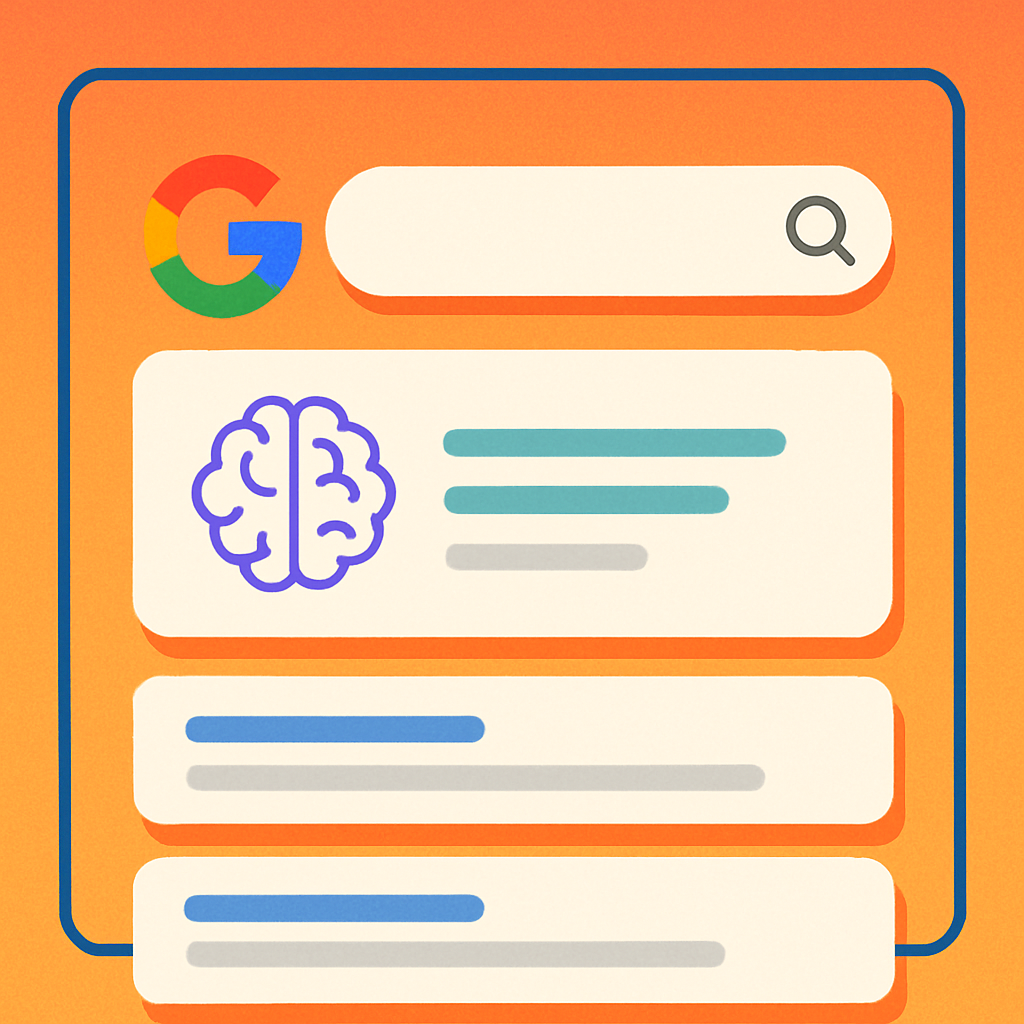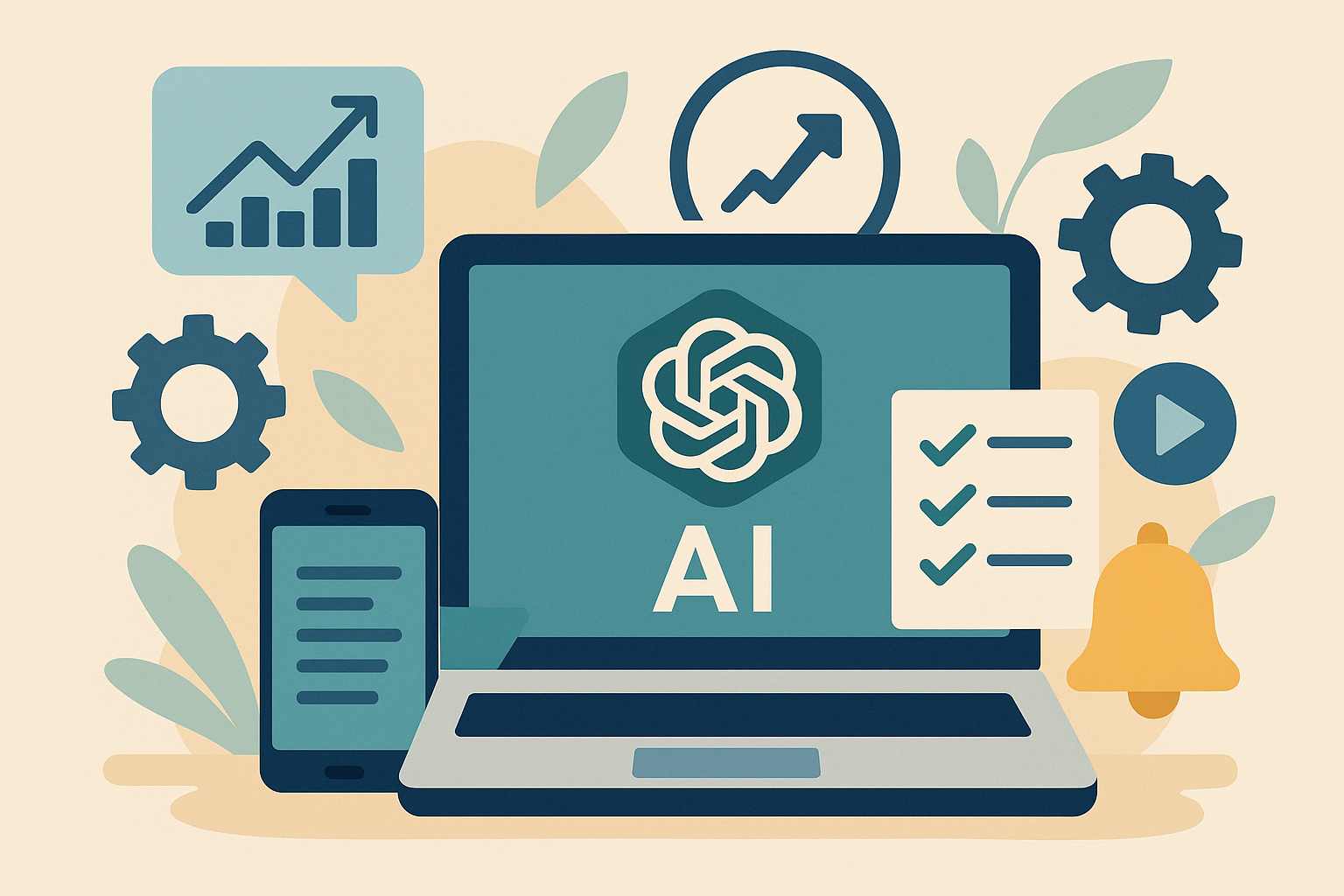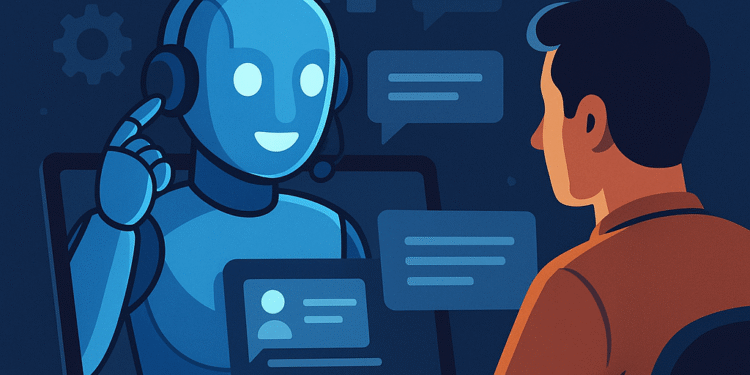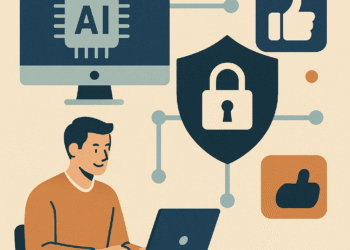The customer service landscape is undergoing a significant transformation. 85% of customer interactions are expected to be handled without a human agent by 2025, according to recent trends. This shift is largely driven by the adoption of AI-powered helpdesks in SaaS companies.

SaaS companies are leveraging AI helpdesks to automate Tier-1 support, reducing costs and enhancing customer service efficiency. By doing so, they can provide faster resolution times and improve customer satisfaction. However, this trend also raises concerns about the potential impact on Tier-1 tech support teams.
Key Takeaways
- SaaS companies are adopting AI helpdesks to automate Tier-1 support.
- AI-powered helpdesks can enhance customer service efficiency.
- The trend is expected to continue, with 85% of customer interactions being handled without human agents by 2025.
- AI helpdesks can provide faster resolution times and improve customer satisfaction.
- The adoption of AI helpdesks may impact Tier-1 tech support teams.
The Evolution of Customer Support in SaaS Companies
The customer support ecosystem within SaaS companies is experiencing a paradigm shift. As the SaaS industry continues to grow, the demands on customer support teams are becoming increasingly complex.
Traditional Support Team Structures
Traditionally, SaaS companies have relied on tiered support structures, with Tier-1 being the first point of contact for customers. These teams are typically responsible for handling basic inquiries and routing more complex issues to higher-tier teams.
Limitations of Traditional Support Teams:
- High operational costs due to the need for a large workforce
- Inability to scale efficiently during peak periods
- Potential for inconsistent customer experiences
The Increasing Demands on Modern Support Teams
Modern SaaS customer support teams face a myriad of challenges, from handling a high volume of support tickets to providing personalized experiences across multiple channels.
The key demands include:
- 24/7 Support Availability
- Multichannel Support (email, chat, social media, etc.)
- Personalized Customer Interactions
Cost Challenges of Scaling Human Support
Scaling human support teams to meet growing demands is costly. The expenses associated with hiring, training, and maintaining a large support staff can be prohibitive.
| Cost Component | Description | Impact on Scaling |
|---|---|---|
| Hiring Costs | Recruitment, onboarding, and training expenses | High upfront costs |
| Operational Costs | Salaries, benefits, and infrastructure for support staff | Ongoing expenses that scale with team size |
| Training Costs | Ongoing training to keep support staff updated on products and processes | Continuous investment required |
AI-powered helpdesks can significantly reduce the workload for support agents and improve response times, addressing some of the cost and scalability challenges faced by traditional support teams.
Understanding AI Helpdesk Technology in SaaS Support Automation
Modern AI helpdesk technology is at the forefront of SaaS support automation, offering innovative solutions to enhance customer support efficiency.
What Makes Modern AI Helpdesks Different
Modern AI helpdesks differ significantly from their traditional counterparts due to their ability to learn and adapt to customer interactions. They utilize advanced machine learning algorithms to improve response accuracy and provide personalized support.
- Ability to handle complex customer queries
- Continuous learning from interactions to improve response quality
- Integration with various SaaS tools for seamless support
Core Technologies Powering AI Support Systems
The core technologies behind AI helpdesks include natural language processing (NLP), machine learning (ML), and deep learning (DL). These technologies enable AI systems to understand customer inquiries, classify issues, and provide relevant responses.

- Intent recognition to understand customer queries
- Sentiment analysis to gauge customer emotions
- Knowledge base integration for accurate and up-to-date information
Integration Capabilities with Existing SaaS Infrastructure
AI helpdesk technology is designed to integrate seamlessly with existing SaaS infrastructure, enhancing support capabilities without disrupting current workflows. This integration allows for:
- Unified customer profiles across platforms
- Automated ticket routing and resolution
- Enhanced analytics for improved support strategies
By understanding and leveraging these aspects of AI helpdesk technology, SaaS companies can significantly improve their support automation, leading to enhanced customer satisfaction and operational efficiency.
How AI Helpdesks Are Transforming Tier-1 Tech Support
The integration of AI helpdesks is revolutionizing the way SaaS companies handle Tier-1 tech support. By automating routine inquiries and tasks, AI helpdesks are freeing up human agents to focus on more complex issues that require a personal touch.
Common Tier-1 Support Tasks Now Handled by AI
AI helpdesks are capable of handling a variety of common Tier-1 support tasks, including:
- Answering frequently asked questions
- Providing basic product information
- Helping with simple troubleshooting
- Assisting with password resets
As Zendesk’s research indicates, AI-powered support tools can significantly reduce the workload of human support agents, allowing them to focus on higher-value tasks.
Automated Ticket Classification and Routing
One of the key benefits of AI helpdesks is their ability to automatically classify and route support tickets. This ensures that issues are directed to the right support agent or department, reducing response times and improving customer satisfaction.
“AI-powered ticket classification and routing have transformed our support operations, enabling us to respond to customer inquiries more efficiently.” –
Intercom Support Team
24/7 Support Availability Without Human Staffing
AI helpdesks provide SaaS companies with the ability to offer 24/7 support to their customers without the need for human staffing around the clock. This not only improves customer satisfaction but also reduces support costs.
By leveraging AI helpdesks, SaaS companies can ensure that their customers receive timely and effective support, regardless of the time of day or night.
The Business Case for AI in Customer Service
The business case for AI in customer service is compelling, with significant benefits in cost reduction and customer satisfaction. As SaaS companies continue to navigate the complexities of providing top-notch support, the adoption of AI helpdesks is emerging as a strategic imperative.
Cost Reduction and ROI Analysis
One of the primary drivers for adopting AI in customer service is the potential for cost reduction. AI helpdesks can significantly decrease operational expenses by automating routine inquiries and support tasks, thereby reducing the workload on human support agents. According to recent studies, companies that have implemented AI-powered support systems have seen a reduction in support costs by up to 30%.
A detailed ROI analysis reveals that the initial investment in AI technology can yield substantial returns over time. For instance, a SaaS company with a large customer base can expect to save on:
- Reduced staffing costs due to automation
- Lower training costs as AI systems handle common queries
- Decreased infrastructure costs through more efficient use of resources

Scalability Benefits for Growing SaaS Companies
As SaaS companies grow, their customer support needs evolve. AI helpdesks offer a scalability benefit that traditional human support teams cannot match. AI systems can handle an increasing volume of customer inquiries without a proportional increase in costs or resources.
This scalability is particularly beneficial for growing SaaS companies, as it allows them to:
- Maintain high levels of customer satisfaction during periods of rapid growth
- Respond quickly to customer inquiries, improving overall support efficiency
- Free up human support agents to focus on more complex issues that require a personal touch
Customer Satisfaction Metrics with AI Support
Customer satisfaction is a critical metric for any SaaS company, and AI helpdesks are proving to be effective in improving satisfaction rates. By providing 24/7 support availability and quick response times, AI helpdesks can significantly enhance the customer experience.
Key customer satisfaction metrics that AI support can improve include:
| Metric | Description | Impact of AI |
|---|---|---|
| First Response Time | Time taken to respond to a customer’s initial inquiry | AI can reduce this time to near instant |
| Resolution Rate | Percentage of issues resolved on the first contact | AI can improve this rate through efficient issue handling |
| Customer Satisfaction Score (CSAT) | A measure of customer satisfaction with the support received | AI can improve CSAT through quick and effective support |
Real-World Implementation: Leading SaaS Companies Using AI Helpdesks
Several pioneering SaaS companies are revolutionizing customer support by integrating AI helpdesks into their operations. This shift is not just about adopting new technology; it’s about transforming the way they interact with customers and deliver support. Let’s explore how industry leaders like Zendesk, Intercom, and Freshdesk are leveraging AI helpdesks to enhance their customer support services.
Zendesk’s AI-Powered Answer Bot
Zendesk has been at the forefront of AI-powered customer support with its Answer Bot. This AI helpdesk solution uses natural language processing (NLP) to understand customer inquiries and provide relevant answers. By automating the response to common queries, Zendesk has significantly reduced the workload on its human support agents, allowing them to focus on more complex issues.
The implementation of Answer Bot has resulted in increased customer satisfaction due to the rapid response times and the availability of support around the clock. Moreover, Zendesk has reported a notable reduction in support costs, as the AI system handles a substantial volume of customer inquiries.
Intercom’s Resolution Bot Success Stories
Intercom’s Resolution Bot is another exemplary AI helpdesk solution that has transformed customer support. This bot is designed to resolve customer issues quickly by providing instant answers and guiding users through troubleshooting processes. Intercom’s success stories highlight how the Resolution Bot has improved customer experience by offering timely and effective support.
One of the key benefits of Intercom’s Resolution Bot is its ability to learn from interactions, becoming more effective over time. This continuous learning capability ensures that the bot can handle a wider range of customer inquiries, further reducing the need for human intervention.
Freshdesk’s Freddy AI Implementation
Freshdesk has also made significant strides in AI-powered customer support with its Freddy AI. This AI helpdesk solution is designed to automate support processes and enhance the overall customer experience. Freddy AI can handle a variety of customer inquiries, from simple queries to more complex issues, providing timely and accurate responses.
The implementation of Freddy AI has enabled Freshdesk to scale its customer support efficiently, handling a large volume of inquiries without a proportional increase in support staff. This scalability is crucial for growing SaaS companies looking to expand their customer base without compromising on support quality.
The Human Impact: Are Support Jobs Really at Risk?
The integration of AI helpdesks in SaaS companies is transforming the landscape of customer support, raising questions about the future of support jobs. While AI is increasingly capable of handling routine support tasks, it’s essential to consider how this shift affects the human element of customer support.

Changing Roles for Tier-1 Support Agents
Tier-1 support agents are likely to see a significant change in their roles as AI helpdesks take over more straightforward customer inquiries. Agents will need to adapt to handling more complex issues that require a human touch, such as resolving escalated complaints or addressing technical problems that are beyond the capabilities of current AI technology.
This shift means that support agents will need to develop advanced problem-solving skills and a deeper understanding of the products or services they support. The role of Tier-1 agents will evolve into more specialized positions, focusing on areas that benefit from human empathy, creativity, and critical thinking.
New Job Opportunities Created by AI Implementation
While AI may replace some support jobs, it also creates new opportunities within the customer support landscape. The implementation of AI helpdesks requires skilled professionals to manage, maintain, and improve these systems. This includes roles such as AI training data specialists, AI system administrators, and customer success managers who work alongside AI to ensure customer satisfaction.
Moreover, the insights generated by AI helpdesks can lead to new positions focused on analyzing customer interactions and improving the overall customer experience. These roles will be crucial in bridging the gap between technology and human customer needs.
Skills Support Teams Need in the AI Era
In the era of AI helpdesks, support teams will need to acquire new skills to remain relevant. Technical skills, such as understanding AI and machine learning principles, will become increasingly important. Additionally, soft skills like empathy, problem-solving, and effective communication will continue to be valuable, especially when dealing with complex customer issues.
Support teams will also need to be adept at working alongside AI systems, understanding when to escalate issues to human agents, and how to leverage AI insights to improve customer interactions. Continuous learning and adaptation will be key to success in this new landscape.
Customer Perspectives on AI vs. Human Support
Customer opinions on AI helpdesks versus traditional human support teams are shaping the future of customer service in SaaS companies. As businesses increasingly adopt AI-powered support solutions, understanding customer satisfaction and preferences is crucial for delivering effective service.
Satisfaction Rates with AI-Only Interactions
Studies have shown that customer satisfaction rates with AI-only interactions vary widely. Some customers appreciate the quick and efficient resolutions provided by AI helpdesks, while others feel frustrated when they cannot get their complex issues resolved without human intervention. According to a recent survey, 62% of customers reported being satisfied with AI-powered support for simple inquiries.
However, when it comes to more complex issues, customers tend to prefer human agents. The same survey revealed that 75% of customers preferred human support for issues requiring empathy or personalized solutions. This highlights the importance of striking the right balance between AI and human support in SaaS customer service.
When Customers Prefer Human Agents
Customers generally prefer human agents when dealing with complex, emotionally charged, or highly personalized issues. For instance, a customer facing a critical technical issue that affects their business operations may feel more comfortable speaking with a human who can provide empathy and a more nuanced understanding of their problem.
Moreover, human agents are better equipped to handle situations that require a personal touch, such as complaints or special requests. Empathy and understanding are key factors that AI systems currently struggle to replicate fully, making human agents indispensable in these scenarios.
Generational Differences in AI Support Acceptance
There’s a notable difference in how various age groups perceive AI support. Younger generations, who are more tech-savvy, tend to be more accepting of AI helpdesks. A study found that 70% of millennials are comfortable using AI for customer support, compared to 45% of baby boomers.
This generational divide highlights the need for SaaS companies to adopt a flexible approach to customer support, offering both AI and human support options to cater to different customer preferences across various age groups.
In conclusion, understanding customer perspectives on AI versus human support is essential for SaaS companies to optimize their customer service strategies. By recognizing the strengths and limitations of both AI and human support, businesses can create a balanced approach that meets the diverse needs of their customers.
Challenges and Limitations of Current AI Helpdesk Solutions
Despite the advancements in AI technology, current AI helpdesk solutions grapple with complex customer issues and technical limitations. As AI continues to transform customer support, understanding these challenges is crucial for future development and implementation.
Handling Complex or Emotional Customer Issues
One of the significant challenges AI helpdesks face is handling complex or emotionally charged customer issues. While AI has made tremendous progress in understanding natural language, it often struggles with nuanced human emotions or highly technical problems that require a deeper understanding.
“AI can process and respond to a vast array of customer inquiries, but it lacks the empathy and personal touch that human agents provide, particularly in situations involving complex or emotional issues.”
For instance, a customer experiencing a critical issue with a product may become frustrated or upset. An AI system might not fully comprehend the emotional context of the customer’s message, potentially leading to inappropriate or unhelpful responses.
Language and Cultural Nuance Difficulties
AI helpdesks also face challenges related to language and cultural nuances. While many AI systems are designed to support multiple languages, they can struggle with idioms, colloquialisms, and cultural references that are specific to certain regions or communities.
| Challenge | Description | Impact |
|---|---|---|
| Language Nuance | Difficulty understanding idioms, colloquialisms, and regional expressions. | Potential for misinterpretation leading to incorrect responses. |
| Cultural References | Struggling to understand cultural context and references. | May result in responses that are not culturally appropriate or relevant. |
Technical Limitations and Edge Cases
Technical limitations and edge cases represent another significant challenge for AI helpdesks. These systems are typically trained on large datasets, but they can encounter situations that are not covered in their training data.
Common technical limitations include:
- Handling highly technical or specialized inquiries
- Dealing with ambiguous or unclear customer requests
- Integrating with legacy systems or complex IT infrastructures
To address these challenges, companies are exploring ways to improve AI training data, enhance natural language processing capabilities, and develop more sophisticated escalation procedures to human agents when necessary.
Implementing an AI Helpdesk: Best Practices for SaaS Companies
Effective implementation of AI helpdesks can significantly enhance customer satisfaction and reduce support costs. As SaaS companies continue to adopt AI-powered support solutions, it’s crucial to follow best practices that ensure successful integration and maximize the benefits of these technologies.

Selecting the Right AI Support Platform
Choosing the appropriate AI support platform is a critical step in implementing an AI helpdesk. When evaluating potential solutions, consider factors such as integration capabilities with your existing infrastructure, scalability to handle growing support demands, and customization options to tailor the AI to your specific needs.
It’s also essential to assess the platform’s ability to learn from your data and improve over time. Look for solutions that offer advanced natural language processing (NLP) capabilities and can handle complex customer inquiries effectively.
Training Requirements and Knowledge Base Development
The success of an AI helpdesk largely depends on the quality of its training data. Developing a comprehensive knowledge base is crucial for enabling the AI to provide accurate and helpful responses to customer queries.
- Ensure that the knowledge base is regularly updated with the latest information about your products and services.
- Incorporate a wide range of customer support scenarios to prepare the AI for various potential inquiries.
- Use real customer interaction data to fine-tune the AI’s understanding and response generation capabilities.
Creating Effective Human-AI Collaboration Models
While AI can handle a significant portion of customer support tasks, there’s still a need for human intervention in complex or emotionally sensitive cases. Developing effective human-AI collaboration models is key to ensuring seamless support experiences.
Establish clear escalation pathways that allow the AI to transfer inquiries to human agents when necessary. This ensures that customers receive the appropriate level of support for their specific needs.
By following these best practices, SaaS companies can successfully implement AI helpdesks that enhance customer satisfaction, reduce support costs, and drive business growth.
The Hybrid Approach: Balancing AI and Human Support Teams
The integration of AI helpdesks into customer support systems has led to a growing need for a hybrid approach that combines the strengths of both AI and human support teams. This approach allows businesses to leverage the efficiency and scalability of AI while maintaining the empathy and understanding that human agents provide.
A key component of a successful hybrid model is designing effective escalation pathways. This involves creating a seamless transition process from AI to human support when issues become too complex for automation to handle.
Designing Effective Escalation Pathways
To design effective escalation pathways, companies must first identify the types of issues that require human intervention. This can be achieved by analyzing customer interaction data and feedback. By understanding the limitations of their AI systems, businesses can develop clear guidelines on when to escalate issues to human agents.
For instance, a customer may start by interacting with an AI chatbot to resolve a simple query. However, if the issue becomes more complex, the AI can escalate it to a human support agent. This ensures that customers receive the appropriate level of support for their needs.

Determining Which Issues Require Human Touch
Not all customer issues are created equal. Some require the empathy and personal touch that only human agents can provide. By analyzing customer feedback and interaction data, businesses can determine which types of issues are best handled by humans.
For example, issues involving complaints or complex technical problems often benefit from human intervention. By routing these issues to human agents, companies can improve customer satisfaction and loyalty.
| Issue Type | Recommended Support Type | Reason |
|---|---|---|
| Simple Queries | AI Support | Efficiency and Speed |
| Complex Technical Issues | Human Support | Requires Personalized Assistance |
| Complaints | Human Support | Empathy and Resolution |
Measuring Success in Hybrid Support Models
To measure the success of a hybrid support model, businesses must track key performance indicators (KPIs) such as customer satisfaction, resolution rates, and support costs. By analyzing these metrics, companies can refine their hybrid approach, making adjustments as needed to optimize performance.
For example, if data shows that customers are generally satisfied with AI support for simple queries but prefer human interaction for complex issues, the company can adjust its escalation pathways accordingly.
Future Trends in AI Helpdesk Technology for SaaS
The future of AI helpdesk technology in SaaS is poised to revolutionize customer support with advancements in natural language processing. As we look ahead, it’s clear that AI is set to play an even more significant role in shaping the customer service landscape.
Advancements in Natural Language Processing
One of the most significant future trends in AI helpdesk technology is the continued advancement in natural language processing (NLP). NLP enables AI systems to understand and respond to customer inquiries more effectively, providing a more human-like interaction. This advancement will lead to more accurate and contextually relevant responses, improving customer satisfaction.
Future NLP developments will focus on better understanding nuances in language, including idioms, colloquialisms, and context-specific queries. This will enable AI helpdesks to handle a wider range of customer issues without human intervention.
Predictive Support and Proactive Issue Resolution
Another key trend is the emergence of predictive support and proactive issue resolution. By analyzing customer data and behavior, AI helpdesks will be able to anticipate and address potential issues before they become critical. This proactive approach will not only enhance customer experience but also reduce the volume of support requests.
Predictive support will leverage machine learning algorithms to identify patterns in customer behavior and system data, enabling SaaS companies to offer more personalized and preventive support.
Integration with Voice and Video Support Channels
The future of AI helpdesk technology also includes the integration with voice and video support channels. As customer preferences continue to evolve, SaaS companies will need to offer support across multiple channels, including voice and video. AI will play a crucial role in enhancing these channels, providing more efficient and effective support.
For instance, AI-powered voice assistants will be able to handle customer inquiries and provide support without human intervention. Similarly, AI-driven video support will enable more personalized and interactive support experiences.
As AI helpdesk technology continues to evolve, SaaS companies will need to stay abreast of these trends to remain competitive. By embracing advancements in NLP, predictive support, and multi-channel integration, companies can significantly enhance their customer support capabilities.
Ethical Considerations in Automating Customer Support
The integration of AI in customer support raises crucial ethical questions that businesses must address to maintain customer trust. As companies increasingly adopt AI helpdesks, it’s essential to consider the implications of automating customer interactions.
Transparency in AI-Human Interactions
One of the primary ethical considerations is transparency in AI-human interactions. Customers have the right to know whether they are interacting with a human or an AI system. Clear disclosure about the use of AI in customer support can help build trust and manage customer expectations.
To achieve transparency, companies can implement several strategies:
- Clearly indicate when a customer is interacting with an AI system.
- Provide information about how AI is used in customer support processes.
- Ensure that customers have the option to escalate issues to human representatives.
Data Privacy Concerns with AI Support Systems
AI support systems rely heavily on customer data to function effectively. This raises significant data privacy concerns. Companies must ensure that they handle customer data responsibly and in compliance with relevant data protection regulations.
| Data Privacy Measure | Description | Benefit |
|---|---|---|
| Data Encryption | Encrypting customer data both in transit and at rest. | Protects against unauthorized access. |
| Access Controls | Implementing strict access controls for customer data. | Limits data exposure to authorized personnel. |
| Regular Audits | Conducting regular audits of data handling practices. | Ensures compliance with data protection regulations. |
Ensuring Equitable Support Access for All Customers
Another critical ethical consideration is ensuring that all customers have equitable access to support, regardless of their technological proficiency or abilities. AI helpdesks can sometimes exacerbate existing inequalities if not designed with inclusivity in mind.
To promote equitable access, companies should:
- Design AI interfaces that are user-friendly and accessible.
- Provide alternative support channels for customers who may struggle with AI systems.
- Continuously monitor and address any disparities in support access.
Conclusion: The Future Balance of AI and Human Support in SaaS
The future of SaaS customer support is likely to involve a harmonious blend of AI and human support. As we’ve explored, AI helpdesks are transforming the way SaaS companies handle customer inquiries, offering 24/7 support and efficient ticket routing. However, human support agents remain essential for complex issues and emotionally charged customer interactions.
Finding the right future balance between AI and human support will be crucial for SaaS companies to deliver exceptional customer experiences while maintaining operational efficiency. By leveraging the strengths of both AI and human support, businesses can create a robust SaaS customer support system that meets the evolving needs of their customers.
As AI technology continues to advance, SaaS companies must stay agile, continually assessing and refining their support strategies to ensure they’re providing the best possible service. The integration of AI and human support will ultimately lead to improved customer satisfaction and loyalty, driving long-term success in the competitive SaaS landscape.
FAQ
What is an AI helpdesk, and how does it work in SaaS companies?
An AI helpdesk is a customer support system that uses artificial intelligence to automate and enhance the support process. In SaaS companies, AI helpdesks use technologies like natural language processing and machine learning to classify and respond to customer inquiries, often providing 24/7 support without human intervention.
How are AI helpdesks replacing Tier-1 support teams in SaaS companies?
AI helpdesks are increasingly handling tasks traditionally performed by Tier-1 support agents, such as answering common questions, classifying tickets, and routing complex issues to human support agents. This shift allows SaaS companies to scale their support operations more efficiently and reduce costs.
What are the benefits of using AI helpdesks for customer support?
The benefits include cost reduction, scalability, 24/7 support availability, and improved customer satisfaction through faster response times. AI helpdesks can also help reduce the workload for human support agents, allowing them to focus on more complex issues.
Are AI helpdesks capable of handling complex or emotional customer issues?
While AI helpdesks have made significant progress, they still struggle with complex or emotional customer issues that require empathy and nuanced understanding. In such cases, human support agents are typically more effective, and AI systems are designed to escalate these issues to humans.
How do SaaS companies implement AI helpdesks effectively?
Effective implementation involves selecting the right AI support platform, developing a comprehensive knowledge base, training the AI system on the company’s specific support needs, and creating a hybrid model that balances AI and human support.
What are the ethical considerations in automating customer support with AI?
Key ethical considerations include ensuring transparency in AI-human interactions, protecting customer data privacy, and making sure that AI support systems are accessible and equitable for all customers, regardless of their technological proficiency or background.
Can AI helpdesks integrate with existing SaaS infrastructure?
Yes, modern AI helpdesk solutions are designed to integrate seamlessly with existing SaaS infrastructure, including CRM systems, ticketing systems, and other support tools, enhancing their functionality and effectiveness.
How do customers perceive AI support compared to human support?
Customer perceptions vary, with some appreciating the quick responses and 24/7 availability of AI support, while others prefer human agents for complex or emotionally sensitive issues. Generational differences also play a role in acceptance of AI support.
What skills do support teams need to thrive in the AI era?
Support teams need to develop skills that complement AI, such as critical thinking, empathy, and complex problem-solving. They must also be able to work effectively alongside AI systems, understanding when to escalate issues and how to leverage AI insights.
What future trends can we expect in AI helpdesk technology for SaaS?
Future trends include advancements in natural language processing, predictive support capabilities, proactive issue resolution, and integration with voice and video support channels, further enhancing the customer support experience.



















































